Representative Michael O’Donnell (R-St. Louis) addressed his colleagues on Wednesday as he announced his resignation from the House. O’Donnell is accepting a position with the Missouri Secretary of State’s Office, becoming the state’s Commissioner of Securities.
Tag: Michael O'Donnell
Tax Credit Legislation Expected to Bring More Film Productions, Concerts to Missouri
More television, movie, and concert productions could be coming to Missouri after the legislature approved tax credits targeting the entertainment industry.
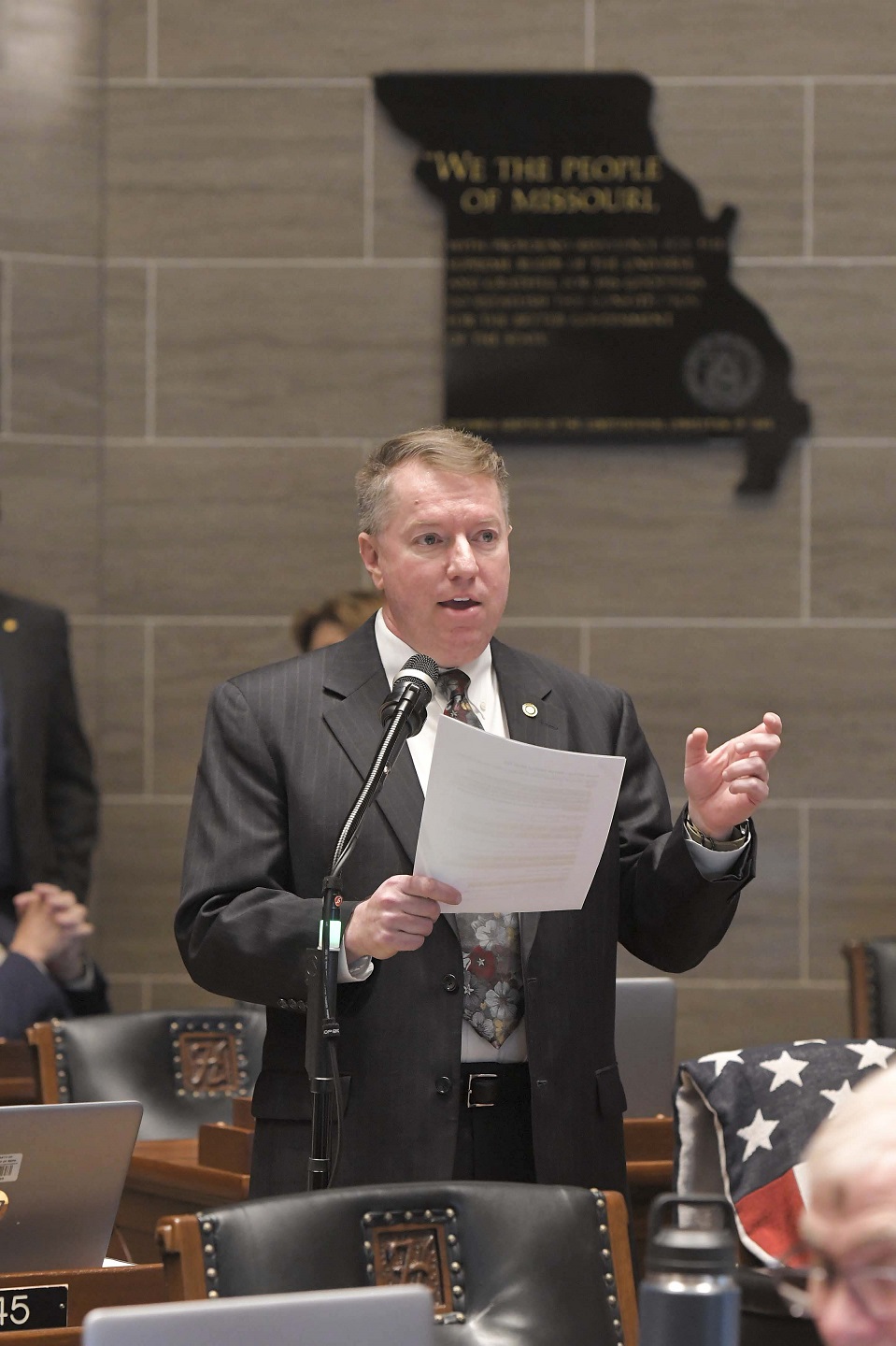
The “Show MO Act” created credits for up to 30 percent of qualifying expenses for live entertainment and tour expenses, if certain conditions are met. It created credits equaling 20 percent of qualifying film production expenses, with additional credits available if more conditions are met.
Senate Bill 94 had broad bipartisan support on its way through the House and Senate, and was signed into law by the governor last month.
Representative Michael O’Donnell (R-St. Louis) said with tax credits, the first consideration is always whether they are fiscally responsible.
“We really worked hard to try to make it as conservative as possible while at the same time leveling the playing field so Missouri can compete with other states,” said Cape Fair Republican Brad Hudson regarding the concert portion of SB 94. “These kinds of concerts could be held in numerous different places within our state, and we’ve seen when a big name entertainer comes to town, the kind of revenue that that generates for a community is definitely notable, and I expect that we will see more of that after this legislation takes effect.”
For an artist to qualify for the credits they must perform at least two concerts in the State of Missouri.
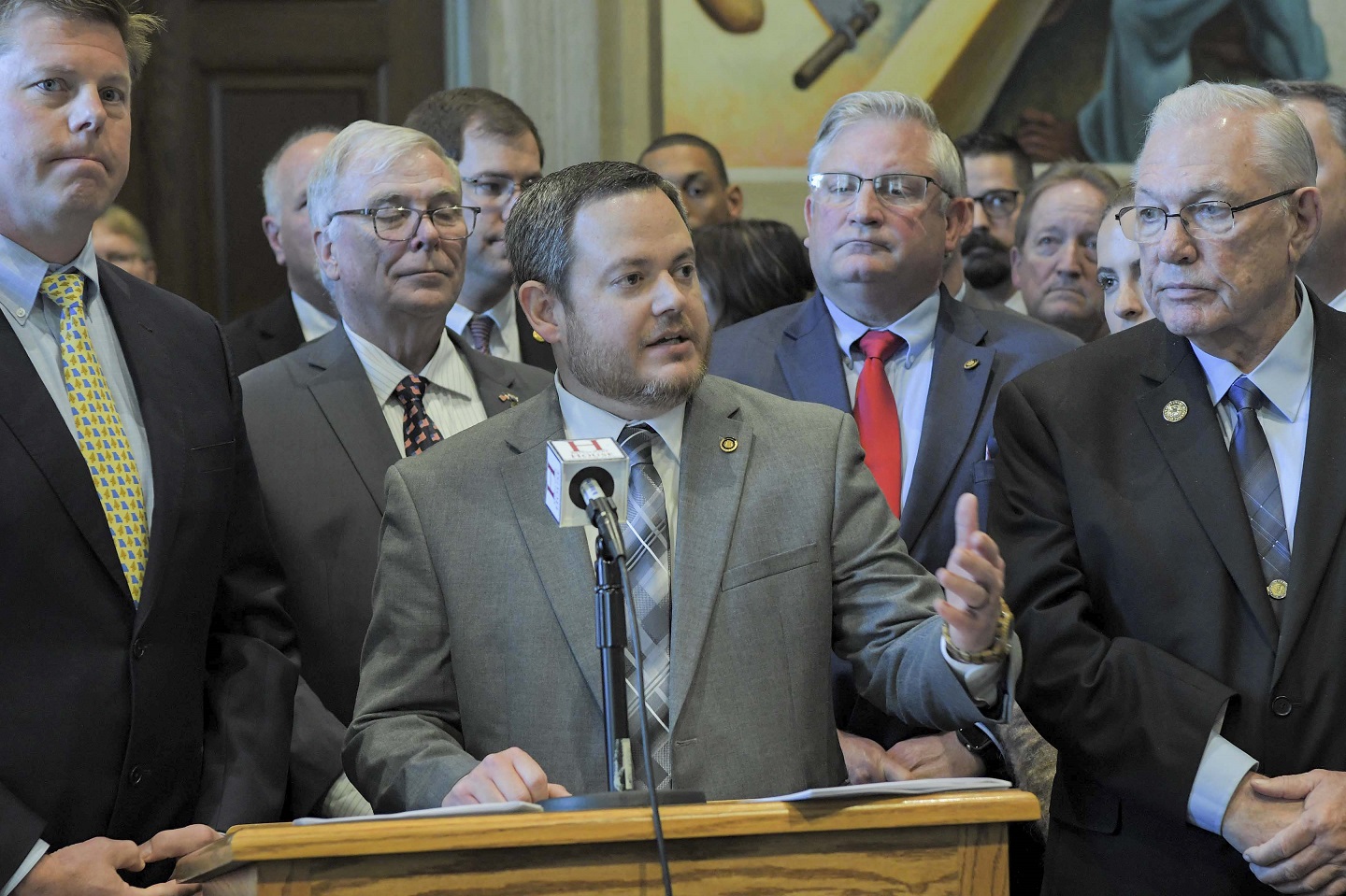
The only other state that offers tax credits to concert productions is Pennsylvania, which recently increased the cap on its credits due to their success. Hudson said due to geography alone, Missouri could fare even better.
O’Donnell said Missourians could also get more opportunities to see their favorite artists.
The state’s previous film tax credit program expired in 2013. Since then the state has hosted little in the way of television and motion picture filming, while some major projects – even ones set in Missouri – have gone elsewhere. The new law puts Missouri among 39 states that offer film incentives.
Representative Steve Butz (D-St. Louis) has a brother in the film and live theater industry, who this past spring moved to Georgia to film a movie that might otherwise have been filmed in Missouri.
“He, just as an actor, said hey, you know that Georgia has these film tax credits and the film industry has exploded in Georgia even to the point that Ozark, the show that was a huge success and was meant to be filmed, and it certainly is about, the Missouri Ozark region, was filmed in Georgia, as was this movie that my brother just filmed. He said it absolutely is attracting and creating a film industry,” said Butz. “He said Missouri is losing out on this. You don’t have hardly any TV shows filmed there, you don’t have movie sets coming there. They might use a few shots like to simulate something from the Midwest, or if it has to do with St. Louis or Lambert Airport or something, but they’re not actually moving the sets and the crews there.”
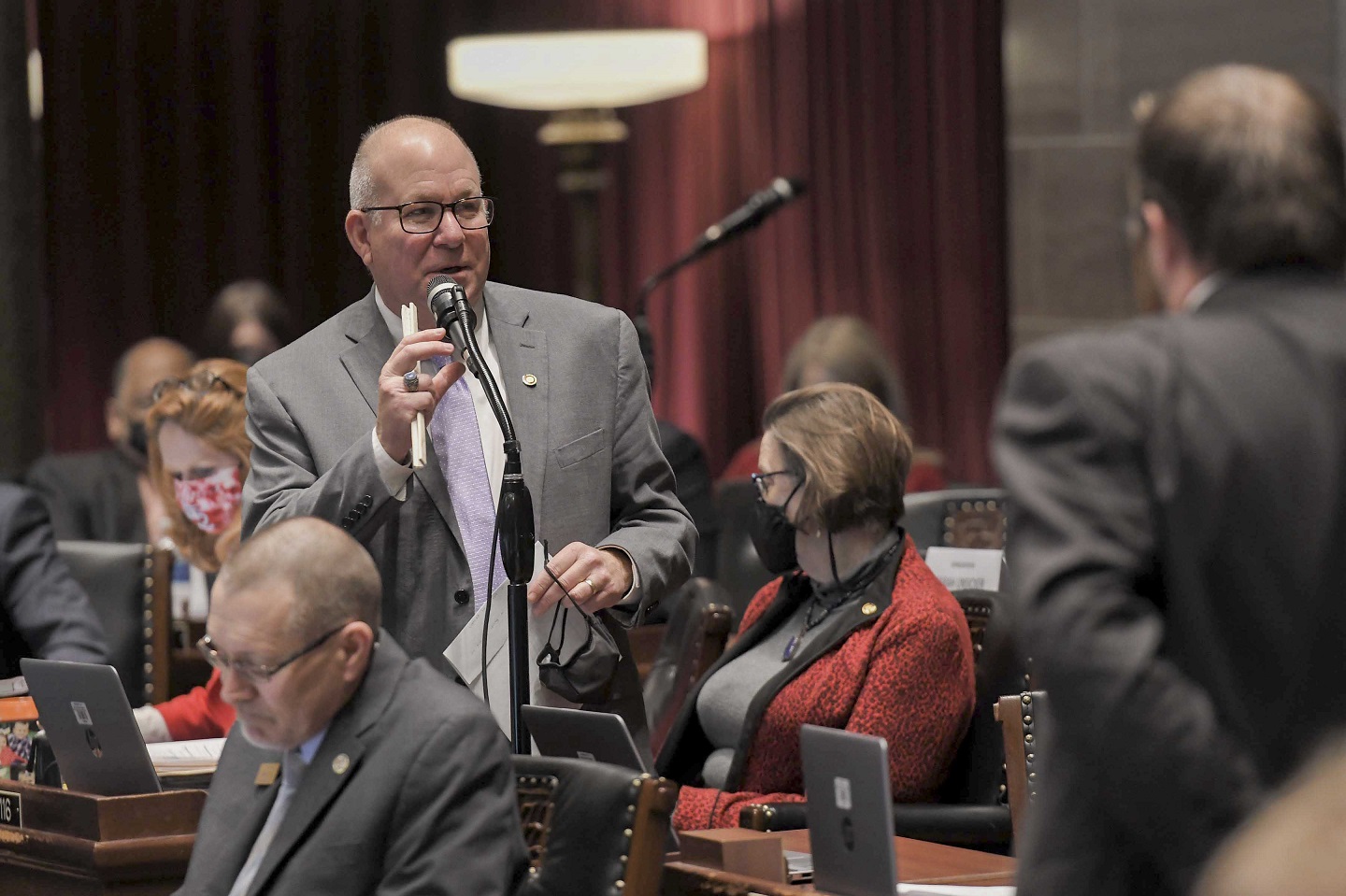
The benefits of having things filmed in Missouri aren’t just financial. There’s a boost to the very morale of communities, and that often spans generations.
The film tax credits are capped at $16-million dollars. In addition to the 20 percent credit for qualifying film productions, another 5 percent can be earned if at least 15 percent of production takes place in a rural or blighted area; another 5 percent can be earned if a certain number of Missourians are hired; and another 5 percent is available if the production depicts Missouri or the region in a positive light. The Department of Economic Development will decide which productions are approved.
As with all tax credits, these will be reviewed annually by the legislature to ensure that they are benefitting Missouri. As O’Donnell put it, “What’s the return on investment? The state’s taxpayers are making an investment. What are they getting back? I think in this case we’re going to find ourselves very positive.”
The legislation becomes effective August 28. The new tax credits would expire in 2030 unless a future legislature and governor agree to extend them.
Expired temp tags to phase out as vehicle dealers collect sales tax under new law
Many Missourians will be pleased to know that expired temporary license tags on vehicles could soon become a thing of the past, under one of the bills signed into law earlier this month.
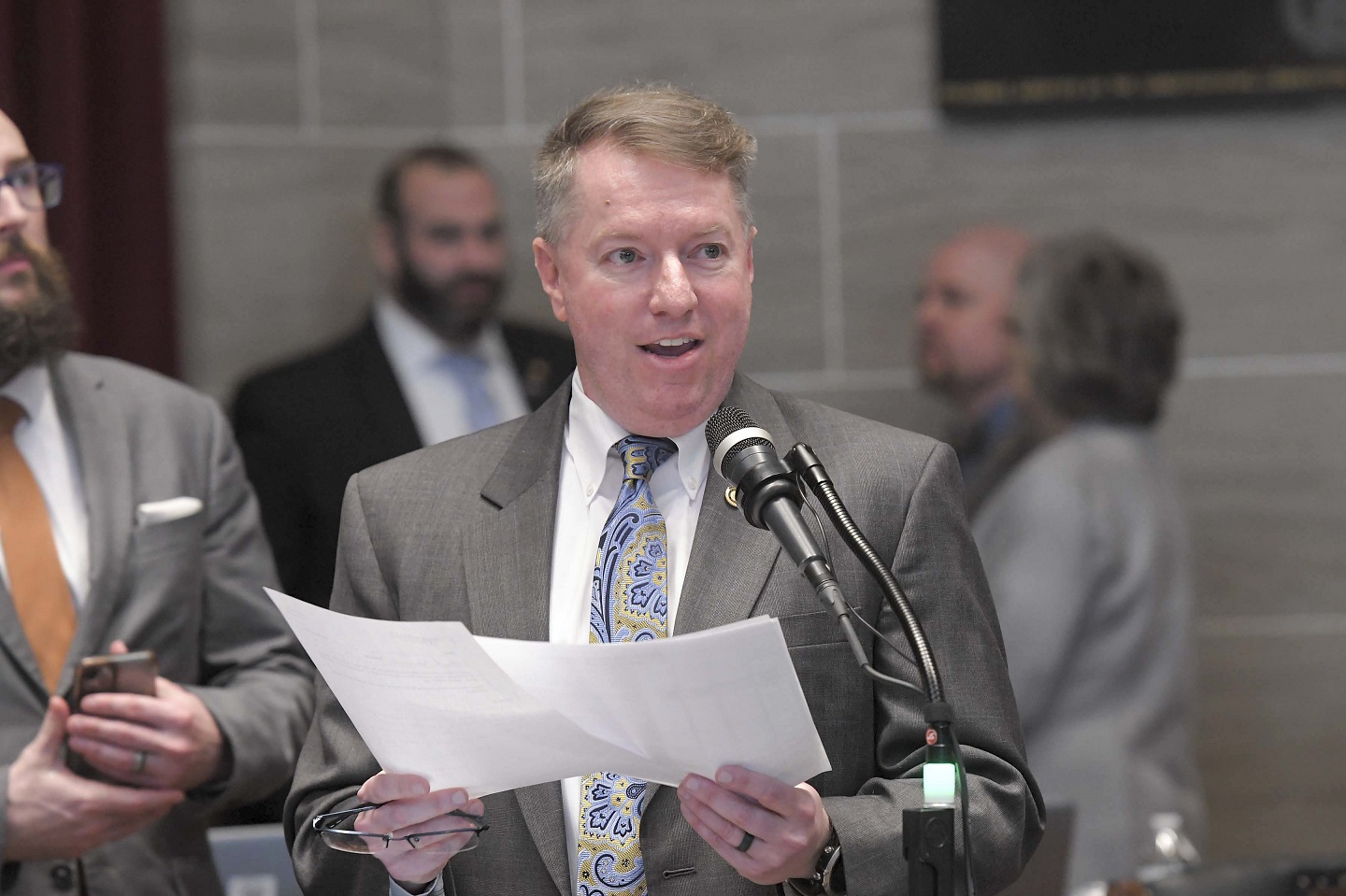
Those tags have, for some, been a source of anger and fodder for jokes. Entire social media accounts have been dedicated to posting pictures of vehicles with tags that expired months or even years ago, and some openly ridicule law enforcement for not acting against drivers with outdated tags. For others the issue has been a source of anxiety as they felt the scrutiny of peers and law enforcement while driving with them.
“It’s embarrassing,” said Representative Michael O’Donnell (R-St. Louis) of the system now in place in Missouri – the system that would be changed as part of Senate Bill 398. “This [change] is long overdue … we’re only one of like three or four states that’s still doing it this way.”
The “way” to which O’Donnell refers is the collection of sales taxes on vehicle purchases by the Department of Revenue, after the sale.
“We had this weird situation in Missouri where people would go buy a car and unlike anything else you buy you don’t pay the sales tax when you buy it,” explained Representative Peter Merideth (D-St. Louis). “People get the best car they think they can afford. Next thing they know they go to get their plates for it, they find out they owe $4,000 or $5,000, or even $1,000 or $500 if they got a cheap, used car, it’s a lot of money at once in order to get their plates, and they go, ‘Well I can’t afford that.’”
O’Donnell was the House handler of the proposal that became part of SB 398 that will require auto dealers to collect sales tax at the time of a vehicle purchase.
While having dealers begin collecting taxes at the time of purchase sounds like a simple change, Merideth said it took several years for infrastructural changes that will allow it.
“We’ve been saying for a long time that that’s the solution,” said Merideth, “and then the Department of Revenue would tell us, ‘We don’t have a technical system that can do that.’ What they told us is their computer systems that they were using were designed in the ‘80s when we barely had computers and hadn’t been updated.”
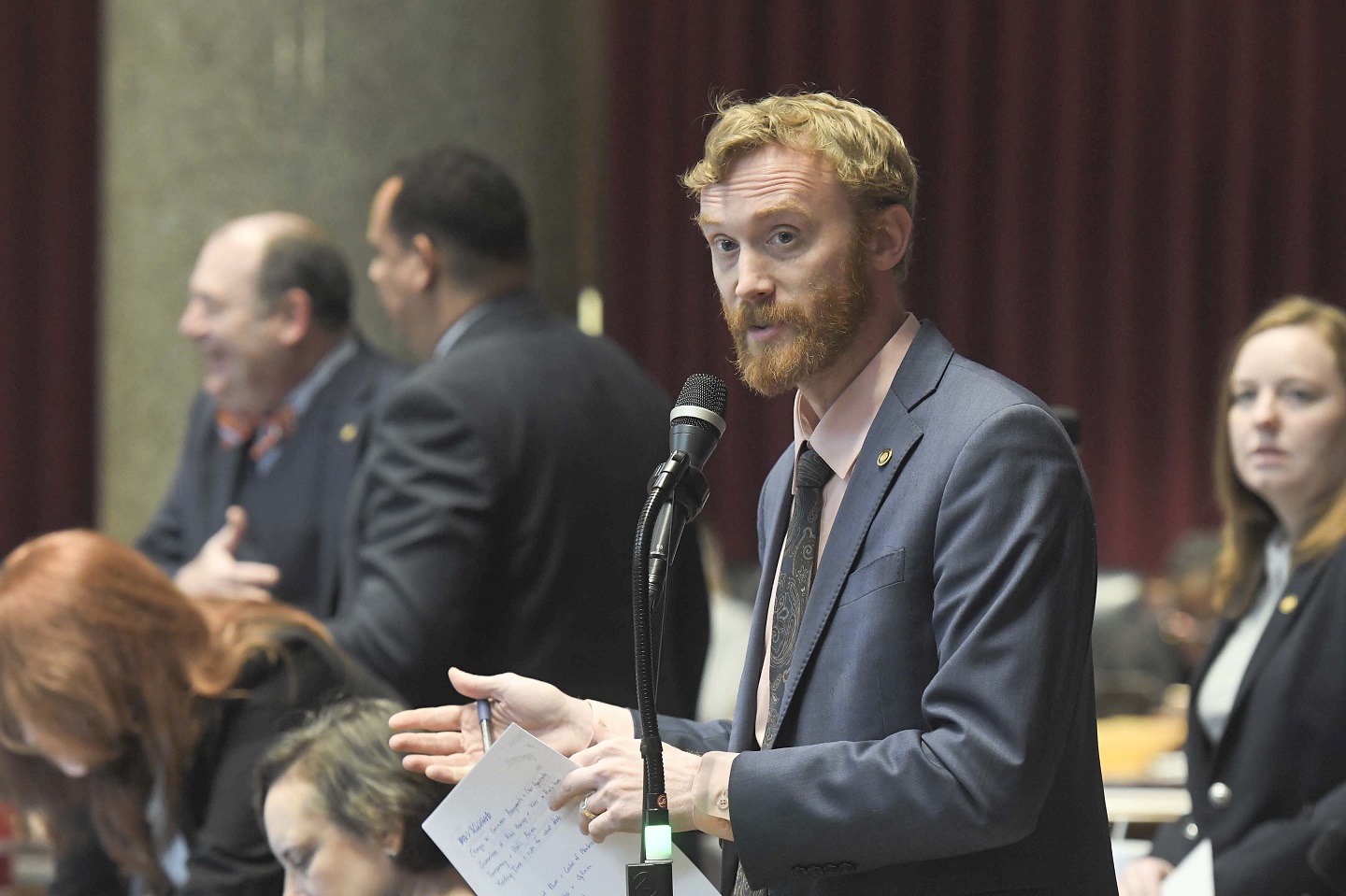
A series of legislative and budgetary changes – some of which, notes Merideth, did not have the bipartisan support that this portion of SB 398 had – have allowed for this bill to advance and O’Donnell describes it as the last step in a long process. The new law becomes effective August 28but it allows several months for changes to Department of Revenue systems. O’Donnell said it could be 12 to 24 months before those buying vehicles experience the new system.
Many legislators in recent years have said that this issue was among those about which they most often heard complaints from constituents, but they often learned that increasing enforcement against those with expired tags was only going to hurt those who were already financially struggling and would not end the problem.
Merideth told House Communications, “This temp tag issue is the thing I have heard maybe second most from constituents about, second only to gun violence, of anything in my district. It shocked me how upset people are about it, but I get it. It feels like we have a situation where all these people are running around that aren’t paying their fair share of the taxes that the rest of us are paying.”
“I’ve heard a lot of people say, ‘Well don’t buy the car if you can’t pay the taxes,’” said O’Donnell, but he, like Merideth and others, quickly learned that it wasn’t always that simple. He said a series of reports by a television reporter illustrated the depth of the problem. She talked to a number of Missourians who had expired temporary tags.
“A lot of people had hardship problems,” O’Donnell learned. “That was a lot of money to come up with, and she would ask the question, ‘If you were able to roll it into your financing and just pay $30 extra each month would that have been more doable,’ and people were like, ‘Oh my gosh, that would’ve been so much easier and so much less stressful.’”
O’Donnell also learned how anxious many of those drivers were because of their expired tags. “It wasn’t like it’s no big deal, nobody cares. They were always nervous that they were going to get pulled over and get questioned about it … [this legislation] will reduce that stress of thinking that the eyes of the world are upon you because you’ve got this temp tag.”
The end result was a much-needed change that lawmakers on both sides of the political aisle will be glad to talk about to their constituents.
Said Merideth, “I’m tired of seeing the expired temp tags and I’m tired of, honestly, hearing from so many people about the expired temp tags. It’s a frustrating problem and honestly I’m glad we’re finally going to collecting the revenue that we need to have and we’re going to do it in a way that people are going to know what they’re getting into when they buy their car.”
O’Donnell said four or five years from now there might still be some stragglers out there, but most expired tags should disappear over the next couple of years.
Production note: due to a technical issue, the audio from Rep. Merideth was not of good quality. Those who wish to access it may contact House Communications.
House bill would keep high schoolers’ personal finance curriculum up to date
Missouri high school students’ education in personal finance would be regularly updated, to keep up with changes in the world of finance, under a bill being considered in the state House.

The Department of Elementary and Secondary Education (DESE) already requires that high schools teach personal finance. House Bill 809 would ensure that this continues by putting it in state statute. It would also add the stipulation that a work group review the mandated curriculum every seven years to make sure it’s keeping with the times.
The bill is sponsored by Representative Michael O’Donnell (R-St. Louis), who among other things is a fixed income securities trader for an investment firm.
He said the working group proposed in HB 809 would include people with backgrounds in both education and finance. They would work, “to make sure that we’re building a curriculum that’s age appropriate – the course would be for [high school-aged students] – and then make sure that we’re covering the important topics in the industry that folks are going to need to know once they’re out in the real world.”
He said a lot of aspects of personal finance aren’t intuitive, and Missouri needs to make sure students understand what they’ll be getting into.
O’Donnell said updating the curriculum periodically is an obvious necessity, as changes in financial industries are coming faster and faster.
“So much of banking … ten years ago the number of folks that did the bulk of their banking online was pretty small and I would say probably the majority of folks are now doing 90-plus percent of their banking online,” said O’Donnell. “The other thing that we probably wouldn’t have talked about ten years ago is floating rate mortgages. Interest rates have been so low for so long that we’ve been talking about fixed rate mortgages for a long time. Now we’re in this higher interest rate environment where folks should know that to get that lower interest rate on that adjustable mortgage, it means something and that there are some pitfalls.”
The legislation would require a half-credit, equal to one semester, of education on this subject matter. O’Donnell discussed with legislators on the House Committee on Elementary and Secondary Education whether that would be enough.
The committee did discuss incorporating some of this education at a less-complicated level into an earlier grade level, such as eighth grade.
The bill’s supporters include the Missouri Bankers Association and the Missouri Credit Union Association. No one testified in opposition to it.
HB 809 cleared that committee on a 12-0 vote and awaits action by a second committee. O’Donnell said the language of this bill will likely be incorporated into at least two other pieces of legislation.